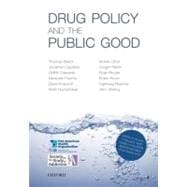
| Terms and phrases printed in bold are defined in the glossary at the end of the book | |
| Contributors | p. xi |
| Introduction | |
| Framing the issues | p. 3 |
| Matters of substance | p. 13 |
| Drug epidemiology and drug markets | |
| The international dimensions of drug use | p. 27 |
| Harms associated with illicit drug use | p. 47 |
| Illegal markets: the economics of drug distribution and social harm | p. 63 |
| The legal market: prescription and diversion of psychopharmaceuticals | p. 81 |
| The evidence base for drug policy: research on strategies and interventions | |
| Strategies and interventions to reduce drug use and related harm: section overview | p. 97 |
| Preventing illicit drug use by young people | p. 105 |
| Health and social services for drug users | p. 123 |
| Supply control | p. 139 |
| Criminalization and decriminalization of drug use or possession | p. 163 |
| Prescription regimes and other measures to control misuse of psychopharmaceuticals | p. 179 |
| Drug policy and system issues at the national and international levels | |
| Drug policy and control at the international level | p. 203 |
| The variety of national drug policies | p. 221 |
| Health and social services for drug users: systems issues | p. 235 |
| Synthesis and conclusions | |
| Summary and conclusions | p. 251 |
| Appendix | p. 261 |
| References | p. 271 |
| Glossary | p. 325 |
| Index | p. 331 |
| Table of Contents provided by Ingram. All Rights Reserved. |
The New copy of this book will include any supplemental materials advertised. Please check the title of the book to determine if it should include any access cards, study guides, lab manuals, CDs, etc.
The Used, Rental and eBook copies of this book are not guaranteed to include any supplemental materials. Typically, only the book itself is included. This is true even if the title states it includes any access cards, study guides, lab manuals, CDs, etc.